If you bought your ride around the 2000s, we’re sure it has at least a dependable air-conditioner. Your ride is also bound to have some of the safety features that help you control your car better. One of these features is the ABS or anti-lock brake system.
Most of the vehicles today have this feature. Although it isn’t the solution for road accidents, ABS does contribute to its prevention. But what exactly is ABS? What can it do for you? How was this concept realized? And how should you drive a car equipped with it? Find out everything you need to know right here in this guide from Philkotse.com:
1. What does ABS do?
We all know what car brakes are for. Anti-lock brakes, on the other hand, make it easier for you to stop the car. By properly utilizing the ABS, the driver can stop the car at a smaller distance. But there are times when this system may not work when you want it. This what we’ll discuss later.
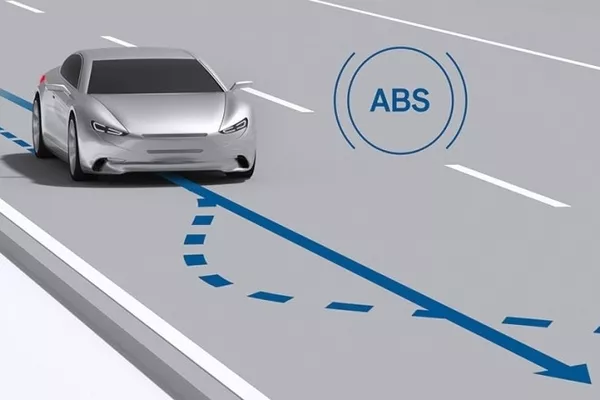
Anti-lock brakes make it easier for you to stop the car
>>> Read more: All you need to know about ABS - Anti-lock braking system.
2. History of ABS
The anti-lock brake system was first developed by a man named Gabriel Voisin. The very first successful ABS was introduced to the world in 1929. Back then, the system wasn’t used or intended for land transportation at all. It was first used in the braking mechanisms of airplanes. With time, anti-lock braking was perfected into the ABS we know today.

With time, anti-lock brakes were perfected into the ABS we know today
3. Driving a car with ABS
Before we dive into the actual tips, you first have to make sure that your ride actually has ABS. This is fairly simple to do. Most vehicles (both cars and trucks) that come with ABS also have an ABS icon that lights up on the dash.
You’re supposed to see a yellow or amber-colored ABS icon when you turn your key. If there’s no light or obvious icon, but you believe your car has ABS, read your manual. You can also contact the dealership where you got the car from.
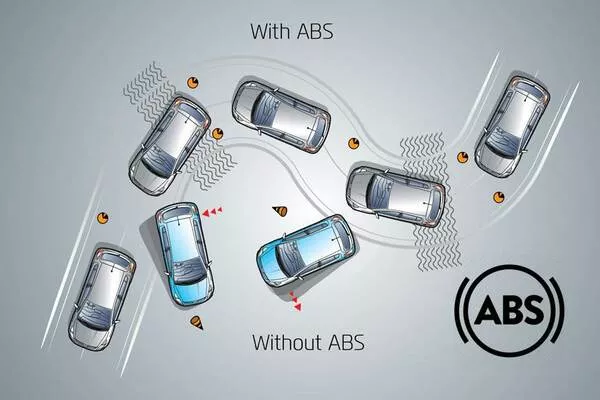
With ABS, the driver can stop a car over a shorter distance
>>> Also read: Driving on slippery roads without ABS: 5 easy steps to follow.
Now that we got that out of the way, here are the tips that you came here for:
Tip 1. Don’t pump the brake pedal
Using a vehicle with ABS can be very counterintuitive for a lot of drivers. This is especially true if they’ve gotten used to driving vehicles without this system. These drivers usually pump on the brake pedal to prevent the mechanism from locking up.
Though this works in older vehicles, ABS-equipped rides will have to be addressed differently. ABS-equipped vehicles require you to keep your foot on the brake at a steady pressure. This may be hard for drivers who need to stop the vehicle immediately in urgent situations.
To them, pumping the brakes will a normal reaction when doing a panic stop but in an ABS-equipped vehicle, this motion will disable your ABS. You need to understand that the anti-lock brake system has a better stopping ability. So rather than pumping the brakes, let the ABS do its job.
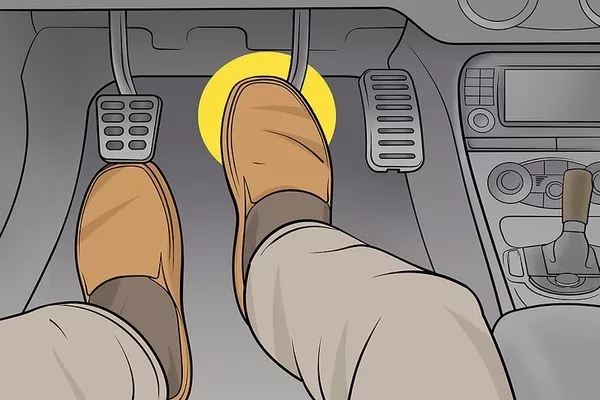
ABS-equipped vehicles require you to keep your foot on the pedal at a steady pressure
>>>FYI: Things you might not know about brake pads and car rotors.
Tip 2. You can steer and avoid obstacles while braking
While you’re maintaining the steady pressure on the brake, know that you can still steer your car. This is actually one of the main benefits of ABS. The wheels won’t lock, so you can still effectively maneuver.
Although ABS seems powerful, it can’t totally save you from accidents 100 percent. But on the upside, it does give you a lot of other benefits that you can use to save yourself. You can still control your vehicle and steer past any obstacles on the road.
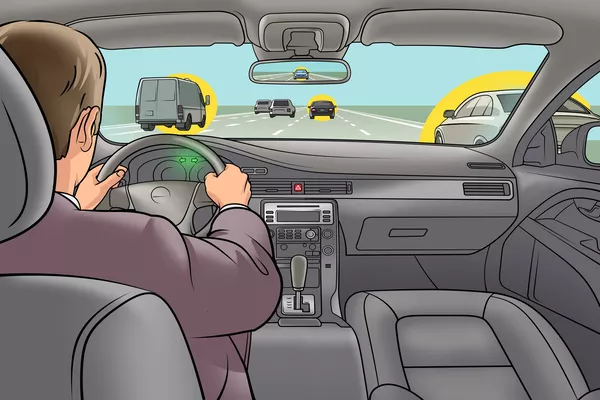
While you’re maintaining the steady pressure on the brake, know that you can still steer your car
>>> Grab your attention: ABS warning light on 6 causes of an illuminated ABS.
Tip 3. Never assume that your car has ABS in all four wheels
Read your owner’s manual before you assume that all the four tires of your car are ABS-equipped. If you think that’s too much work, you can call the dealership and get quick answers. A lot of the modern vehicles these days do have ABS on all four wheels. But there are also models that only have ABS in the rear wheels.
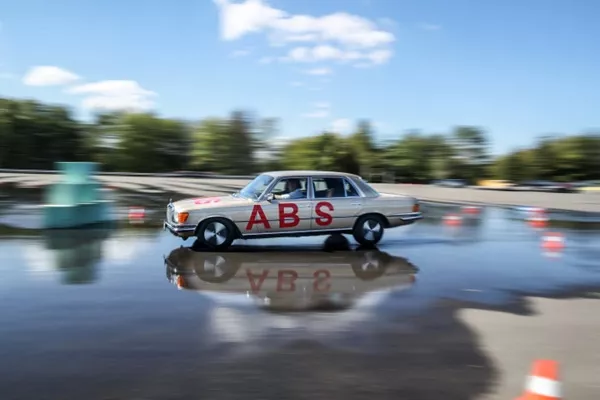
Read your owner’s manual before you assume that all the four tires of your car are ABS-equipped
If your car belongs to this group, the front wheels could still lock up. The ABS-equipped rear wheels will help you stop faster, but the front wheels may lock up -- leading to some loss of control. If you ever find yourself in this situation, you can regain the steering capability by letting the brake pedal go for a few seconds. This will unlock your car’s front wheels.
>>> Recommended article: 9 essential car features that you need to know before taking the wheel.
Tip 4. Remember what happens when ABS engages
Just because you know that your car has ABS doesn’t mean that you’ll get to use it right. In fact, having ABS is different from knowing how to actually use it. An uninformed driver may even mistake the signs that ABS has already engaged in. He may get confused and end up in a bigger catastrophe in the end.

Just because you know that your car has ABS doesn’t mean that you’ll get to use it right
When your ABS kicks in, you will feel a pulsating, vibrating or buzzing feeling on your foot. This means the ABS has already activated. But this may be nerve-wracking and confusing for first-time users. That’s why if you’ve never tried ABS before, it’s best to practice using it first.
You can try doing this in an empty parking lot or a vacant area. Make sure there are no pets or kids running around that you can potentially run over. You can try driving and making panic stops here. This will help you get a feel of the ABS when it kicks in.
Recent posts
- Best car features that are convenient but not really priorities Jan 26, 2021
- 13 less popular car features that are found in cars yet vital Jan 26, 2021
- What are the prioritized car features and what shouldn’t be bothered with? Aug 05, 2019
- Top 7 modern driver assist features in cars today Oct 22, 2020
- Car safety features to beat drowsiness while driving Aug 16, 2022












